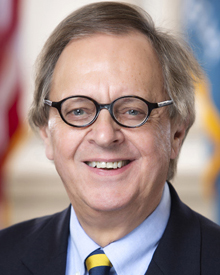Limited Guardianship
Limited Guardianship
Synopsis:
Update (7/4/19): H.S. 1 for H.B. 123 was signed into law by Gov. Carney.
Update (6/19/19): H.S. 1 for H.B. 123 passed the Senate by a vote of 20–0 and now awaits action by Gov. Carney.
Update (5/9/19): H.S. 1 for H.B. 123 passed the House of Representatives by a vote of 39–0 and now goes to the Senate.
H.S. 1 for H.B. 123 changes two parts of the Delaware Code to establish new systems for limited guardianship in cases where the Court of Chancery has difficulty finding suitable candidates. The bill gives the Office of the Public Guardian the responsibility to receive Social Security or Veterans Affairs benefits on behalf of individuals in acute care facilities and individuals receiving services from the Divisions of Developmental Disabilities Services and Substance Abuse and Mental Health. Individuals in those situations run the risk of losing eligibility if they cannot find a representative payee. H.S. 1 for H.B. 123 also creates a new type of guardianship role in which the appointed guardian only has authority over certain parts of an individual’s care and decision-making. Termination procedures for this kind of limited guardianship can be initiated by the guardian, the individual with a disability or an interested third party. This part of H.S. 1 for H.B. 123 arises mainly because people with developmental disabilities occasionally get “stuck” in acute care facilities. This tends to happen when an individual’s medical stay is long enough that the individual loses eligibility for Medicaid or other state benefits, leading to unpaid rent and eviction. Hospitals, which will not discharge an individual who has lost his or her residence, are instead forced to keep the patient on the premises until housing can be found.
Supporters:
Reps. Seigfried (D), Brady (D), Mitchell (D); Sens. Poore (D), Lockman (D); Delaware Healthcare Association, Delaware hospitals and other acute care facilities.
Opponents:
While the State Council for Persons with Disabilities says the bill’s “intent … is good,” it expresses deep concern that the bill could lead to “guardianship irrespective of capacity".
Links to Additional Resources:

